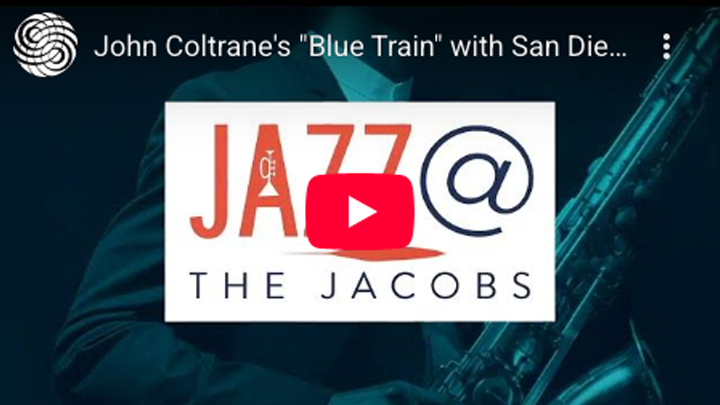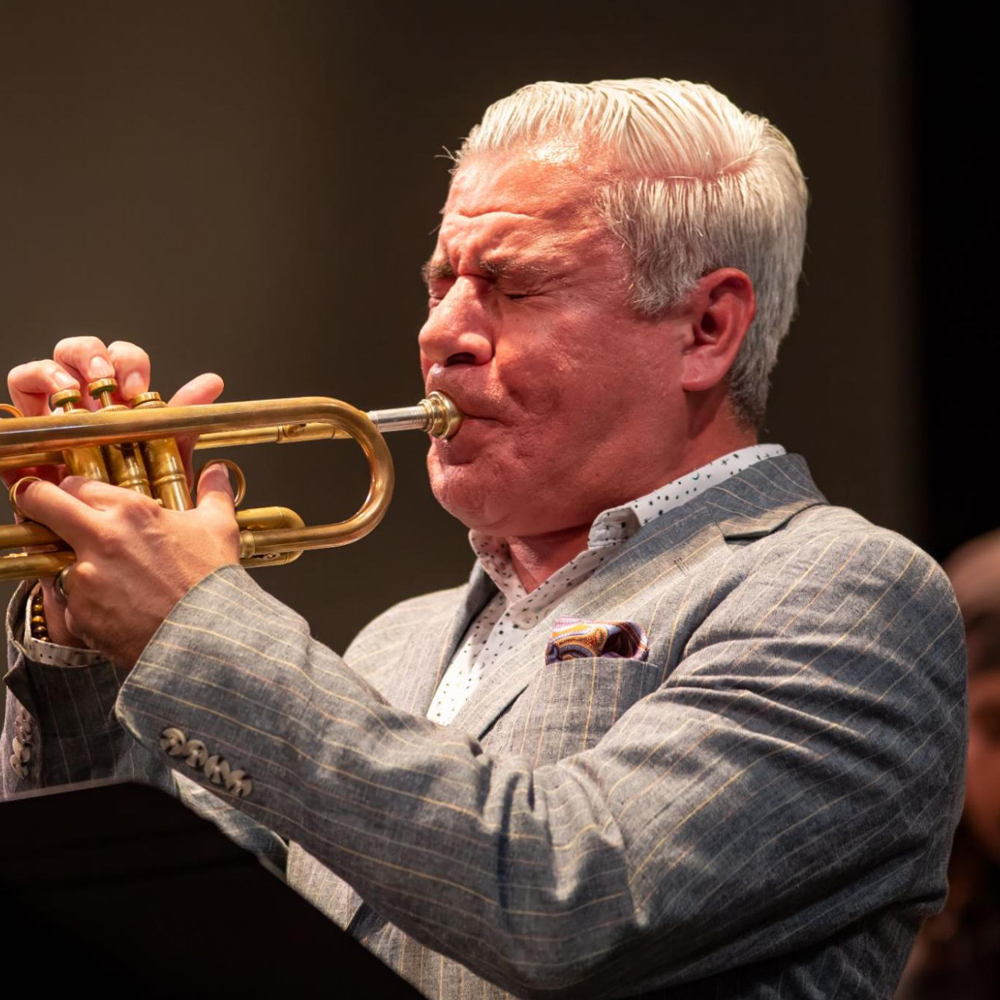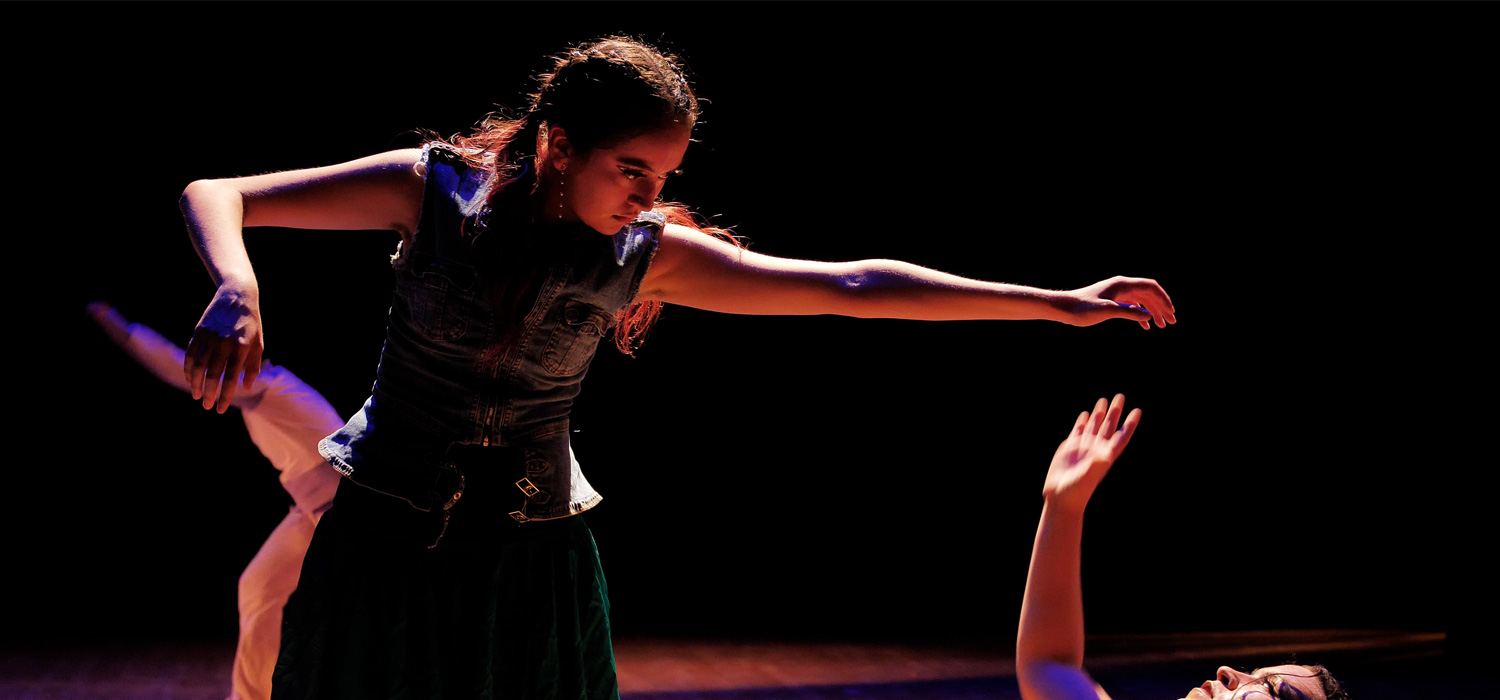Jazz at SDSU
Jazz Studies Program Overview
SDSU’s jazz program is paving the way for the next generation of jazz musicians. We emphasize the practice of jazz based on actual models, historical and current. The students in the jazz program at SDSU are part of a thriving music scene that offers the next generation of players several avenues for obtaining real-life experience on the bandstand. What’s unique about our program? We model our curriculum creatively on how the great figures of jazz often learned this music: through listening to recordings, working one on one with mentors, honing our craft at jam sessions, and obtaining real-life experience on the bandstand with some of the biggest names in jazz.
Jamming and Performing with Jazz Luminaries
A highlight of our program is the jazz guest-artist series, which brings top-tier jazz musicians to campus about six times a year to work directly with students. Unlike most programs, ours puts students center stage—not just in the audience or backing a guest artist. Jazz majors perform alongside visiting artists in jam sessions, small combos, and large ensembles—often leading to professional opportunities. Students also learn through workshops, masterclasses, and lessons with renowned musicians such as Jerry Bergonzi, Gerald Clayton, Peter Bernstein, Joe Farnsworth, Charles McPherson, Aaron Goldberg, Ignacio Berroa, John Clayton, Adam Nussbaum, Cecil Alexander, and Chris Potter.
Where the Scene Meets the Classroom
Vocalists at the Heart of SDSU Jazz
At SDSU, jazz vocalists are front and center—learning, performing, and thriving alongside world-class musicians. Led by internationally acclaimed vocalist Jane Monheit, our program offers unparalleled opportunities for singers to develop their artistry through one-on-one mentorship, jam sessions, and performances with jazz legends. Vocalists engage deeply with the rhythmic and harmonic language of jazz, gaining the skills to lead, accompany, and collaborate in both small combos and large ensembles. With a curriculum rooted in listening, feeling, and real-world experience, SDSU is where jazz singers find their voice—and their groove.
Concert of the Month

John Coltrane's Blue Train
Saturday, November 29th | 7:30 p.m. | Jacobs Music Center
Two of SDSU’s Jazz Program faculty members—tenor saxophonist Brian Levy and jazz trumpeter Gilbert Castellanos—perform at San Diego’s Symphony Hall as part of Jazz at the Jacobs. The program will spotlight music from John Coltrane’s legendary album Blue Train, along with other classic Coltrane selections. The sextet features some of today’s top jazz artists, including renowned NYC drummer Joe Farnsworth and pianist Victor Gold.
Inside the SDSU Jazz Experience
SDSU’s Jazz Program offers an inspiring, hands-on environment where students grow through performance, collaboration, and mentorship. Entry begins with a musical audition that highlights each player’s individuality and creative voice. Students perform in dynamic ensembles and combos, learning directly from acclaimed faculty and guest artists. With real-world experience and a supportive community, SDSU Jazz empowers musicians to develop their sound and thrive in today’s evolving jazz scene.


